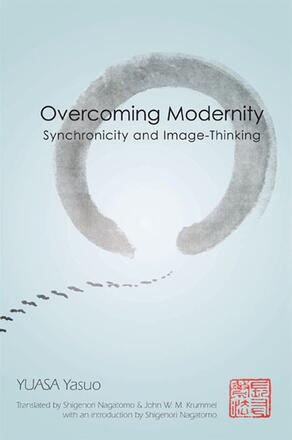
Overcoming Modernity
Synchronicity and Image-Thinking
Alternative formats available from:
These last writings by Japanese philosopher Yuasa engage both Western and Eastern thought to reconsider modernity and offer an alternative, more holistic paradigm.
Description
In Overcoming Modernity, which contains the last writings from Yuasa, the prominent Japanese scholar reconsiders the modern Western paradigm of thinking and in its place proposes a more holistic worldview. A wide range of topics are examined, including the relationships between language, being, psychology, and logic; Jung's concept of synchronicity; the Yijing (Book of Changes); paranormal phenomena; physics and metaphysics; mind and body; and teleology. Through these explorations, engaging a wide range of Western and East Asian thought, Yuasa offers an alternative to the scientific worldview inherited from the seventeenth and eighteenth centuries. This new paradigm involves the integration of space-and-time and mind-and-body, thematics brought together through what Yuasa calls "image-thinking," a mode of thinking that incorporates image-experience.
Yuasa Yasuo (1925–2005) was Professor Emeritus at Obirin University in Japan and the author of several books, including The Body, Self-Cultivation, and Ki-Energy and The Body: Toward an Eastern Mind-Body Theory, both also published by SUNY Press. At Temple University, Shigenori Nagatomo is Associate Professor of Comparative Philosophy and East Asian Buddhism and John W. M. Krummel teaches religion.
Reviews
"…the translators have to be commended for producing in collaboration with Yuasa an exciting presentation of his more controversial thought to complement the existing translations of Yuasa's works in the English language and to introduce to the English-speaking audience one of the most fascinating Japanese thinkers of the twentieth century. " — Philosophy East & West
"I commend Yuasa's conscious commitment to creating a new form of thinking that transcends disciplinary compartmentalization and cultural boundaries. Indeed, Yuasa's creative philosophizing demands that concepts from different disciplines and cultural traditions be removed from the frame of their traditional conceptual determinations and correlated to each other. " — Tu Xiaofei, Dao
"…this book constitutes a cultural critique of modern Western science using as a point of departure not only Japanese culture but also the ideas of CG Jung … As a whole, the book is a stimulating corrective to the Western lens. " — Network Review
"The translation, carefully executed by the longtime Yuasa scholar Shigenori Nagatomo and his student John Krummel, gives the book clarity and accessibility while retaining Yuasa's unique flow of thought and way of reasoning. " — Dao
"This is an outstanding piece of scholarship that breaks new ground in philosophy, science, religion, psychology, and ethics. Rather than treating these areas singly, Yuasa offers a theory that unifies all of them in one brilliant paradigm that establishes a new way of looking at ourselves and our world. Only a superior scholar and thinker like Yuasa could provide such an original perspective. This book stands alone as an innovative synthesis of East/West theory and practice. " — Robert E. Carter, author of The Japanese Arts and Self-Cultivation